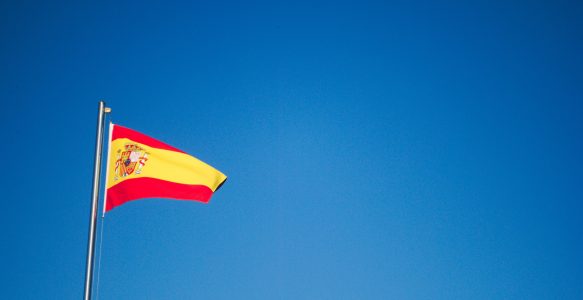This is a translation of the original Spanish text which can be read here.
If anything became clear yesterday on the third day of the 4th Congress on Transparency, which is being held virtually, it was supporting the ability of whistleblowers being to anonymously report irregularities or malfunctions in companies or public administrations.
On this topic, the most convincing was the Director of the Anti-Fraud Agency of Valencia, Joan Llinares, who advocated that the transposition of the European Union Whistleblower Directive, should not require the identification of the person who points out irregularities or corrupt practices.
“I am a strong advocate of anonymous reporting. It is the maximum guarantee for the whistleblower,” he said at the roundtable where he shared the stage, or rather the screen, with one of the most prominent fighters against corruption in Spain, Professor of Political Science at the University Rey Juan Carlos, Manuel Villoria, as well as another expert in the field, Professor of Administrative Law at the University of Barcelona, Juli Solé.
Llinares pointed out that under his direction, the Valencian Anti-Fraud Agency works with anonymous reports, since it is done before an “authority that has among its responsibilities to investigate irregularities in public administrations”. He also highlighted the existing precedents in the Spanish justice system, including one from the Supreme Court in February 2020, which accepts anonymous complaints to point out an illegal activity in the private sector.
Llinares shared with over 200 Congress attendees that the agency he heads, which is at the forefront of Spain, is currently protecting 21 people, mostly public servants. The right to the presumption of innocence already protects the accused, and “what is taken to court is a complete investigation of what has been discovered,” he insisted.
For his part, Solé said it was necessary not only to defend the ability to make anonymous complaints, but also to encourage it. During his speech, Solé spoke in terms of transparency and good governance, also pointing out that the reference standard in the Spanish case is the organic law on data protection, which accepts anonymous complaints.
“Complaints and transparency are a means of promoting good government, good administration, in short, good governance”, insisted Solé, who believes that the European Directive proposes anonymity as a possible option.
For his part, Professor Villoria is also in favour of anonymity and also stressed that in the transposition of the European Directive, all citizens should be allowed to make a complaint and not just limit this right to those who have a working relationship with the irregularity they are reporting. “We should be thinking about how to protect people who know about a reportable crime but do not have a working relationship,” said Villoria, who is a member of the Steering Committee of Transparency International in Spain.
In turn, Llinares warned that, based on his experience, this aspect could be left out of the transposition of the law, which the agency he heads also admits to. “Let’s consider the employees who have been fired because of bad practices or corrupt practices in their workplace – in no way should they be excluded from being able to make a complaint. Moreover, the directive says in its preamble: those who are best aware of corrupt practices are those who are close to them or suffer their consequences,” he explained.
In his opinion, one of the directive’s shortcomings is with regard to the status of the whistleblower, since the legal person is excluded, which might well be a company, an NGO or a citizens’ organisation which fights corruption. “These entities cannot be excluded from their capacity to make complaints. They were born as a citizen reaction to being fed up with so much corruption,” he said.

